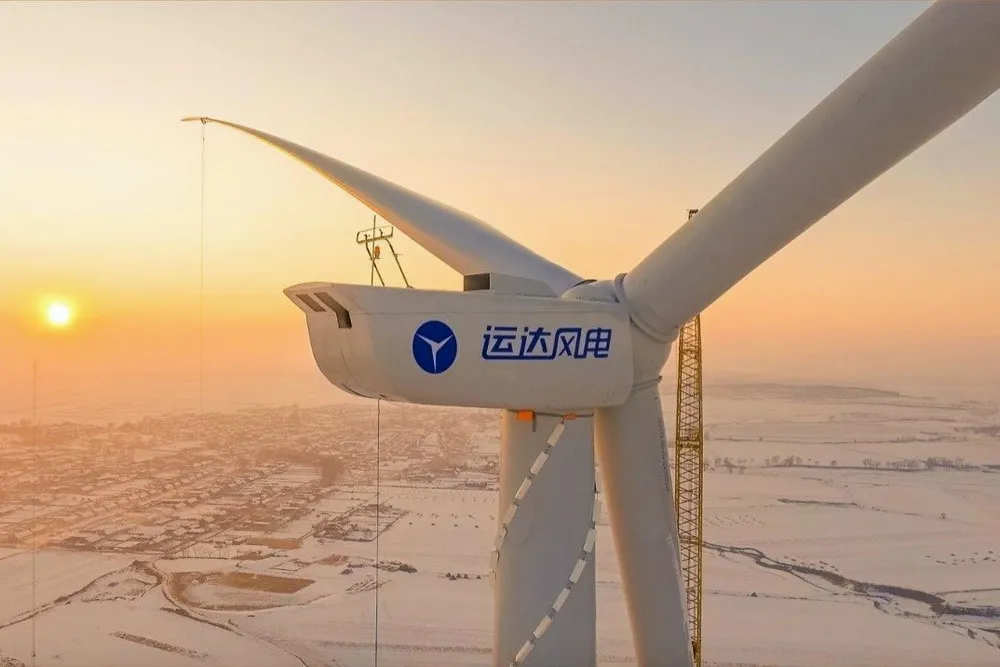Windey lands huge finance-backed turbine deal in Saudi Arabia
Securing financing for international projects is often a major hurdle for Chinese wind turbine makers keen to break into new markets

EXCLUSIVE: Windey has landed a deal to supply 1.1GW of wind turbines for projects in Saudi Arabia in the first financed international supply deal the Chinese manufacturing giant has entered.
Windey is supplying two wind farms that Japan’s Marubeni is developing in Saudi Arabia – the 600MW Al-Ghat project not far from the capital Riyadh and the 500MW Waad Al-Shamal project planned in the country’s Northern Borders province.
Windey signed the supply contract in September last year, he said, a month after inking a breakthrough financing deal for the project. Japan Bank for International Cooperation led more than 10 banks and financial institutions involved in what Yu described as a “very complicated finance solution.”
Windey is supplying WD200 7.7MW turbines with a 200-metre rotor diameter for the two wind farms, he said, with the first set to be delivered this month, said Yu. “Our first turbine is already in the port.”
“It’s a very important project,” said Yu, as it’s Windey’s first international supply deal to receive financing during the construction period. Other Windey projects have received finance, he said, but only refinancing after the wind farms had come online.
This “pioneer project” in Saudi Arabia shows potential customers they can have “confidence” in Windey, he said, while also demonstrating the OEM’s ability to attract critical project financing.
Challenges in securing project financing include a lack of familiarity with Chinese machines and the guarantees and warranties their suppliers are willing to provide. Yu said that, in China, the warranty period for turbines is typically five years, comparable to those in the West.
Windey's terms are he said similar to those of Vestas, Siemens Gamesa and Goldwind.
Despite the challenges Windey faces breaking into international markets, the turbine maker will not make “unreasonable promises” to customers, said Yu, citing deferred payments for turbines as an example.